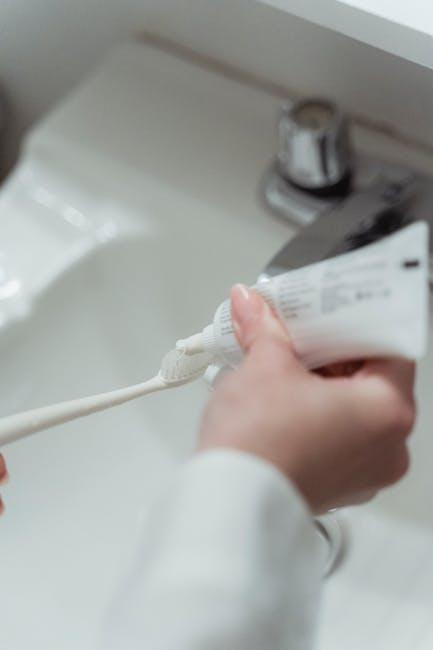Fluoride Ban Could Create Cavities For 1 Of Every 3 U.S. Kids – U.S. News & World Report
The news about a potential fluoride ban in the United States has raised significant concerns among parents, dental professionals, and public health experts. According to a recent report by U.S. News & World Report, such a ban could lead to a dramatic increase in dental cavities, affecting an estimated one in every three American children. This article dives into why fluoride is essential in preventing tooth decay, the possible consequences of banning it, and practical tips parents can use to protect their children’s oral health.
Why Is Fluoride Important For Children’s Dental Health?
Fluoride is a naturally occurring mineral renowned for its cavity-preventing properties. For decades, public water supplies have been fluoridated to boost dental health nationwide, especially among children who are most vulnerable to cavities.
- Strengthens tooth enamel: Fluoride remineralizes and hardens the enamel, making teeth more resistant to acid attacks from bacteria.
- Reduces tooth decay: Studies show that water fluoridation decreases cavities by approximately 25% among children and adults.
- Cost-effective prevention: Fluoride treatment and fluoridated water are low-cost solutions that reduce dental treatment expenses long-term.
The Impact of a Fluoride Ban on U.S. Kids
The potential banning of fluoride from public water and dental products could result in a significant surge in tooth decay. U.S. News & World Report cites research estimating that without fluoride, the prevalence of cavities may rise to encompass around 33% of children nationwide. This surge would place increased burdens on families and health systems alike.
| Factor | Current Status with Fluoride | Projected Status Without Fluoride |
|---|---|---|
| Percentage of Kids with Cavities | ~20% | ~33% |
| Dental Treatment Costs | Lower due to prevention | Increased due to more decay |
| School Absences Due to Dental Issues | Relatively low | Expected to rise |
Long-Term Consequences for Children
Beyond cavities, untreated tooth decay can affect children’s ability to eat, speak, and concentrate in school. Painful dental issues can also impact self-esteem and overall well-being. A fluoride ban threatens to undo decades of public health progress and widen oral health disparities, especially among low-income families.
Benefits of Fluoride in Preventing Cavities
Fluoride’s cavity-fighting power is supported by robust scientific evidence:
- Remineralization: Fluoride helps repair early signs of tooth decay before cavities form.
- Inhibits Harmful Bacteria: Slows down bacteria that produce acids damaging to teeth.
- Safe and Effective: When used according to guidelines, fluoride is safe for all age groups.
Dental organizations such as the American Dental Association (ADA) and Centers for Disease Control and Prevention (CDC) endorse fluoridation as a safe and essential public health measure.
Practical Tips For Maintaining Children’s Oral Health Without Fluoride
In light of possible fluoride restrictions, parents can take several steps to safeguard their children’s dental health:
- Maintain Consistent Oral Hygiene: Brush teeth twice daily with fluoride-free toothpaste if necessary, and floss regularly.
- Limit Sugar Intake: Reduce sugary snacks and drinks which fuel bacterial growth and acid production.
- Regular Dental Visits: Schedule routine checkups and cleanings to catch and treat issues early.
- Encourage Healthy Diet: Promote foods rich in calcium and vitamins to strengthen teeth naturally.
- Use Alternative Protective Products: Look for dental products such as sealants or xylitol-based gums that aid cavity prevention.
Case Study: Communities Without Fluoride
Several U.S. communities have ceased water fluoridation in recent years, offering insights into the health impacts:
| Community | Fluoride Status | Observed Dental Health Trend |
|---|---|---|
| Portland, Oregon | Stopped fluoridation | Increase in cavities reported over 3 years |
| Albuquerque, New Mexico | Reinstated fluoridation after ban | Decline in children’s dental decay noted |
| Calgary, Canada | Stopped fluoridation in 2011 | Mixed results; more cavities in low-income families |
These real-world examples highlight the correlation between fluoride use and oral health outcomes, confirming the mineral’s central role in cavity prevention.
Expert Opinions and Recommendations
Leading dental experts urge policymakers to carefully weigh the consequences of a fluoride ban:
- Dr. Jane Thompson, DDS: “Removing fluoride would place our children at a higher risk for costly and painful dental disease.”
- CDC Oral Health Program: “Water fluoridation remains one of the safest, most effective public health measures to prevent tooth decay.”
- American Dental Association: “We strongly oppose any restrictions that diminish fluoride access for community health.”
Conclusion: Protecting Children’s Smiles for the Future
The proposed fluoride ban threatens to increase the prevalence of cavities in one out of every three American children, leading to a public health setback with broad social and economic consequences. Fluoride has been proven safe and effective in reducing tooth decay for decades, particularly benefiting children’s dental health.
Parents, healthcare providers, and communities can all play a role in advocating for evidence-based policies while adopting proactive oral hygiene habits to protect children’s smiles. Staying informed, maintaining regular dental care, and supporting fluoridation programs are crucial steps toward a healthier future for the next generation.
Stay updated on dental health news and learn more ways to keep your family’s teeth strong and cavity-free by visiting credible sources like the American Dental Association and U.S. News & World Report.


